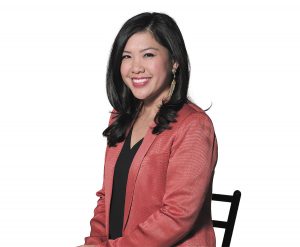Subscriber Benefit
As a subscriber you can listen to articles at work, in the car, or while you work out. Subscribe Now
Dentons Bingham Greenebaum
Indiana University Robert H. McKinney School of Law, 2008
Why did you decide to enter the legal profession?
With a major in business and a minor in dance, at the beginning of college, I thought I would open a dance studio. Then I took a business law class and it changed all my plans. I found corporate law very interesting and wanted to help businesses in this community expand and grow.
What does “diversity, equity and inclusion” mean to you?
It means a culture in which individuals are valued and respected for the different perspectives and ideas that they bring to the table, and each person and his, her or their individual voice matters.
How did you get involved in DEI work, and why have you stuck with it?
When I first started at the firm, I had several great mentors who were champions of DEI, including the late Rod Morgan, who led our Diversified Business Solutions Team and, among many other accomplishments, was the first African American attorney to be named president of the Indiana State Bar Association (which had formerly excluded African Americans from membership). I saw the change that these mentors could achieve over time, and I have stuck with DEI work because I want to be a part of that positive change.
What would you say to someone who perceives “DEI” as a business “buzzword”?
Without action, “DEI” can become a business buzzword. It is important for organizations who are committed to “DEI” initiatives to follow through with engagement, action and measures for accountability.
What is the most significant change you’ve seen in the legal profession?
Advancements in technology, including artificial intelligence, have changed how we practice law with greater efficiency and productivity. Those advancements have also changed how we connect with each other. Although most of us suffer from some type of Zoom fatigue at times, I appreciate how it has expanded how we can recruit talent, grow and advance diverse working groups, and communicate more transparently on a broader scale.
What’s the best advice you’ve ever received?
You cannot control other people’s actions, but you can control your reaction to them.
How do you spend your free time?
I think food and culture have a wonderful way of bringing people together and creating community. I love to cook Thai food and host dinner parties and also share live experiences with friends and family, such as concerts, theater, dance performances and museum visits.
What was your favorite — and least favorite — class in law school?
My favorite class was Law and Social Change, which examined the civil rights movement of the 20th century through the present, focusing on the role of lawyers and the law in affecting social change. My least favorite class was Criminal Law. It was not a good fit for me.
We’re told you’re an advocate for women- and minority-owned businesses. How does your work in corporate law enable you to promote those efforts?
When I initially joined the firm, in addition to my corporate practice, I immediately joined the firm’s Diversified Business Solutions Team. As part of the team, I provided numerous presentations to women and minority-owned businesses regarding minority business enterprise (MBE) and women business enterprise (WBE) certifications and represented clients through the certification processes. I continue to assist women and minority-owned businesses as they grow and expand with corporate governance, commercial contracting and mergers & acquisitions advice.
Tell us about your work with the Thai American Bar Association.
I am a founding member and former board member of the Thai American Bar Association (TABA), which is the first organization to support Thai and Thai American legal professionals in the United States. With the recent rise in anti-Asian sentiments, in collaboration with other TABA leaders, I have organized TABA events to stand against hatred, racism and xenophobia directed at persons of Thai descent and the greater AAPI community, and we have provided the TABA membership with resources for education and advocacy to report or combat hate crimes. I was also instrumental in drafting TABA’s Black Lives Matter Solidarity Statement and participated in conversations with sister bar organizations to foster allyship. As part of TABA’s community outreach, I have traveled to various regions in the United States to provide assistance with free legal clinics and informational “know your rights” seminars.
Please enable JavaScript to view this content.
